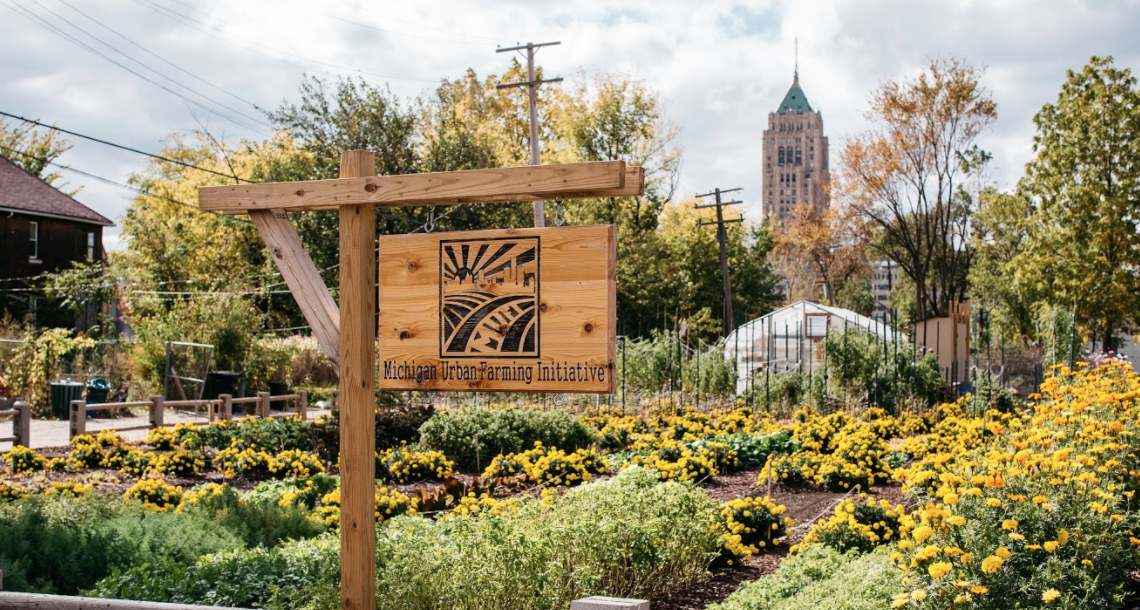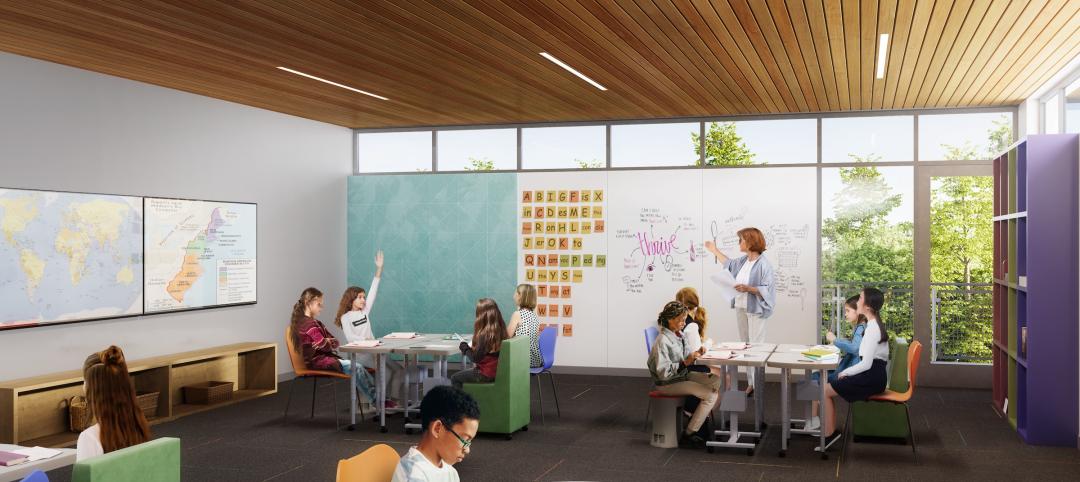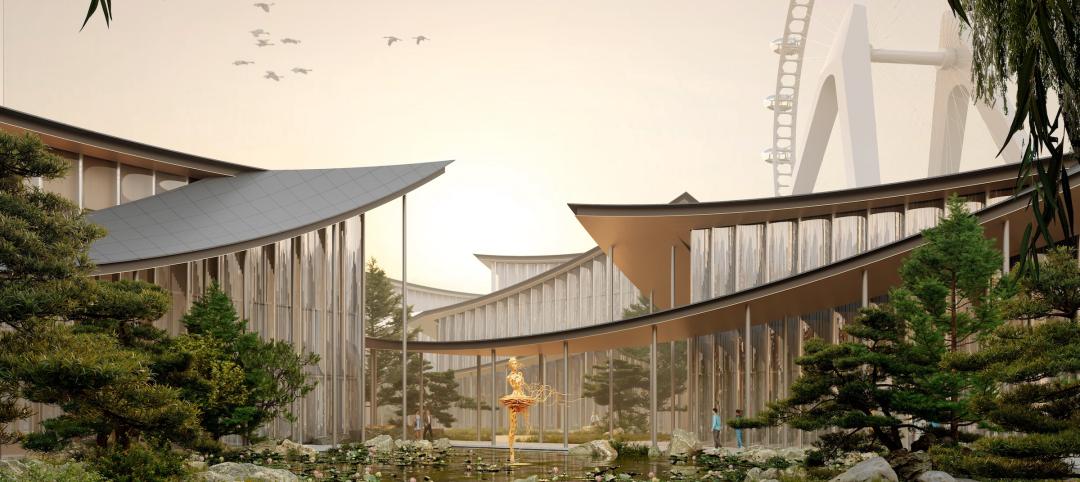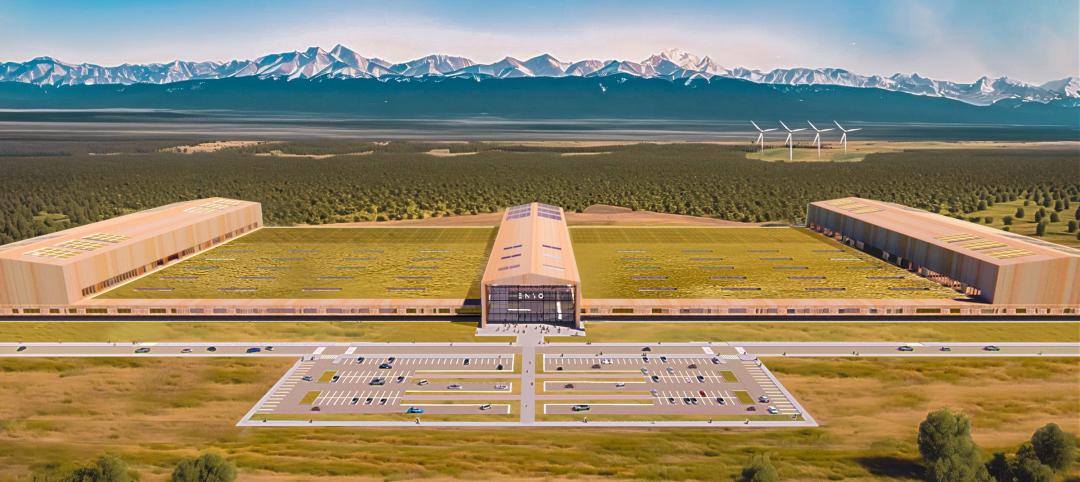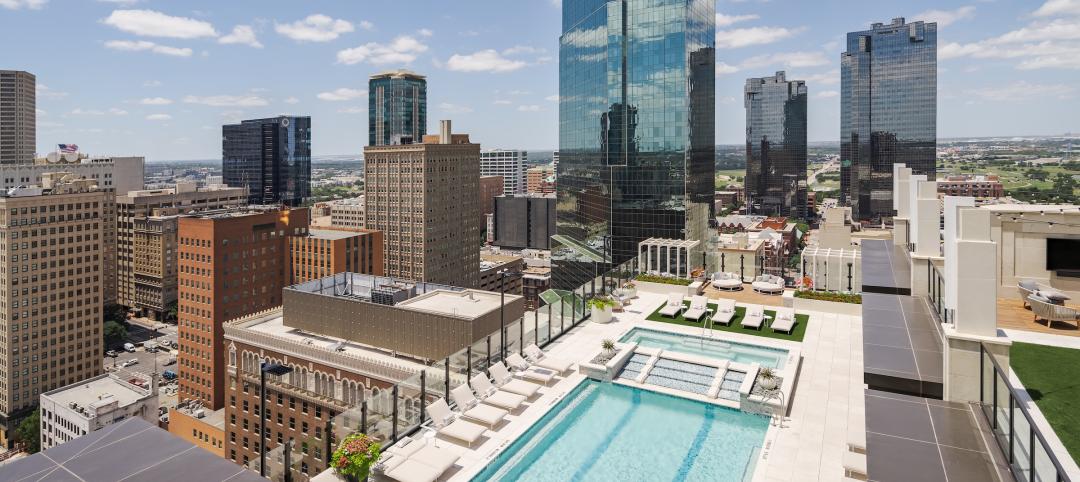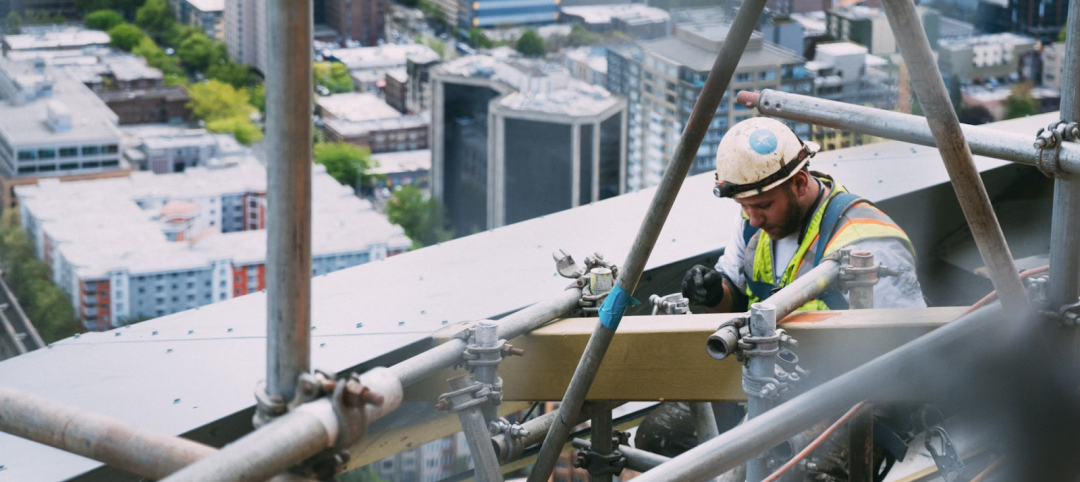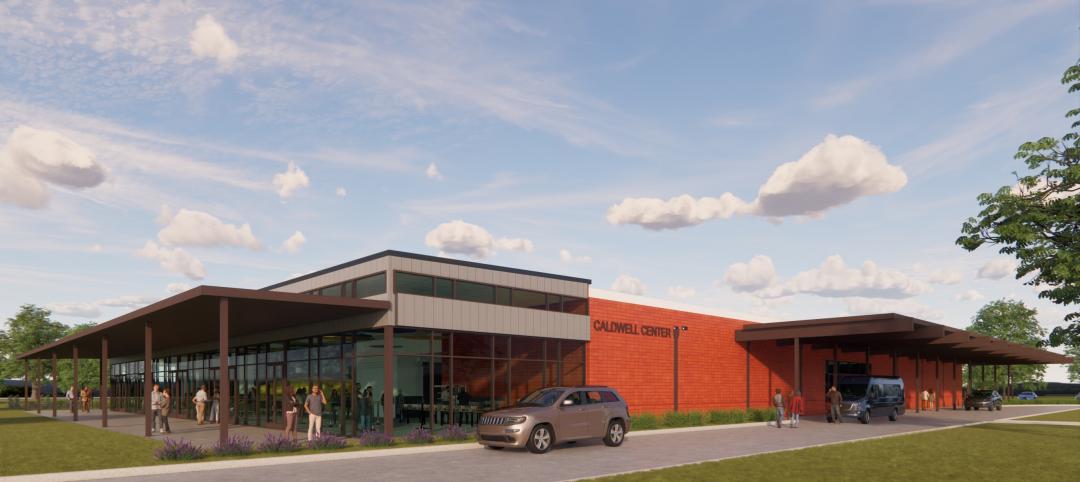Urban farms have been impacting cities’ agribusiness—and, on some cases, their redevelopment—for decades.
In Philadelphia, for example, the success of Greensgrow Farms—whose 6,000-sf flagship greenhouse celebrated its 20th anniversary in 2017, and whose three locations (which include a retail garden center and farmstand) draw 15,000 people per year—has spurred numerous competitors, and has helped gentrify its surrounding working-class neighborhoods.
Since 2011, Gotham Greens has operated a 15,000-sf enclosed rooftop greenhouse in the Greenpoint section of Brooklyn, N.Y., that produces over 100,000 lbs of leafy greens annually. The greenhouse is a tenant of the Greenpoint Manufacturing Design Center, a nonprofit developer dedicated to revitalizing Brooklyn’s industrial spaces for small-scale entrepreneurial manufacturing.
Gotham Greens also operates a 20,000-sf greenhouse in the Gowanus section of Brooklyn that grows over 200,000 lbs of greens, herbs, and tomatoes; a five-story, 60,000-sf greenhouse in the Hollis section of Queens, N.Y., that employs 50 full time workers and produces over 5 million heads of leafy greens; and a 75,000-sf greenhouse on two acres of Chicago’s south side that opened in 2015 and now produces 10 million heads of greens and herbs annually.
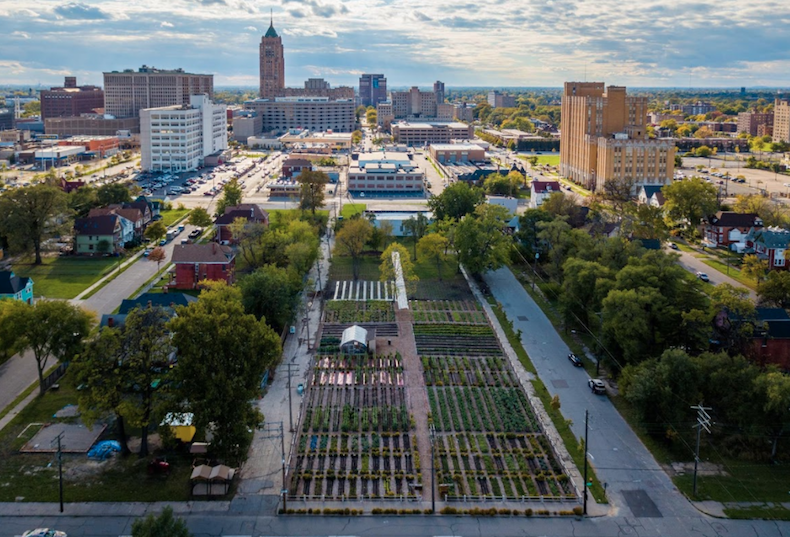 MUFI is developing what it’s calling America’s first “Agrihood,” which will include the adaptive reuse of several buildings on its three-acre complex. A now-vacant, three-story apartment building that dates back to 1915 (pictured) is being converted into a 3,200-sf Community Resource Center. Catalyst Partners is supervising these rehab projects for MUFI, and Integrity Building Group is the AOE and CM. Other Building Team members include Ingalls Engineering Group (M/PE and net-zero energy consultant), IlluminArt Lighting, a division of Peter Basso (EE), Insite Design Studio (design and CE), Jeremy Ziegler (architect). Photo: Michelle and Chris Gerard
MUFI is developing what it’s calling America’s first “Agrihood,” which will include the adaptive reuse of several buildings on its three-acre complex. A now-vacant, three-story apartment building that dates back to 1915 (pictured) is being converted into a 3,200-sf Community Resource Center. Catalyst Partners is supervising these rehab projects for MUFI, and Integrity Building Group is the AOE and CM. Other Building Team members include Ingalls Engineering Group (M/PE and net-zero energy consultant), IlluminArt Lighting, a division of Peter Basso (EE), Insite Design Studio (design and CE), Jeremy Ziegler (architect). Photo: Michelle and Chris Gerard
Several urban farms operate in Detroit, including the six-year-old Michigan Urban Farm Initiative (MUFI), which grows 300 varieties of vegetables on two acres in the Motor City’s North End. Since 2012, MUFI has produced more than 50,000 lbs of produce, which it distributes free to 2,000 households within two square miles of the farm.
In November, during the Greenbuild Expo, MUFI announced its plans to develop what it’s calling the first sustainable “Agrihood” in the U.S., as an alternative neighborhood growth model.
Working with such high-profile partners and sponsors as BASF, Herman Miller, and General Motors, MUFI is converting a vacant 102-year-old three-story apartment building across from its urban garden into a 3,200-sf Community Resource Center. The Center will include two commercial kitchens on the first floor and allow for future production and packaging of valued goods.
On land next to the CRC, MUFI intends to open a healthy food café. It also plans to convert an existing single-family home on the farm’s premises to housing for the farm’s interns. The foundation of another single-family home has been fortified to support a two-bedroom home made from a shipping container. And the basement of a recently fire-damaged and deconstructed home on the farm’s border is being converted into a 12,000-gallon rainwater harvesting cistern that will be used to irrigate the farm and prevent runoff into Detroit’s sewer system.
Integrity Building Group is AOR and provides architecture services and construction for the farm. One of MUFI’s partners, Sustainable Brands, will debut the CRC and café at its conference in Detroit’s Cobo Arena next May.
“Cities are the future, but we can’t just rebuild the same inefficient buildings of the past,” says John Beeson, LEED AP BD+C, EBO+M, a project manager with Catalyst Partners in Grand Rapids, Mich., which is supervising these reconstructions for MUFI. “The question we’re trying to answer is whether we can do urban infill better.”
Tyson Gersh, MUFI’s cofounder, says that while urban redevelopment “was not on our radar screen at first,” it has become a priority, partly for political reasons, but also because “it’s hard for an urban farm to justify itself on its own.”
Gersh observed “quite a few people” who were buying blighted homes around the farm. (He’s identified at least $3.5 million in purchases so far.) Several of those new owners told Gerson they wouldn’t have heard of this neighborhood were it not for the farm.
MUFI is now working with several developers—including The Platform, Basco, Terranova Development, and South Oakland Shelter—on another residential project that would be two blocks from the farm.
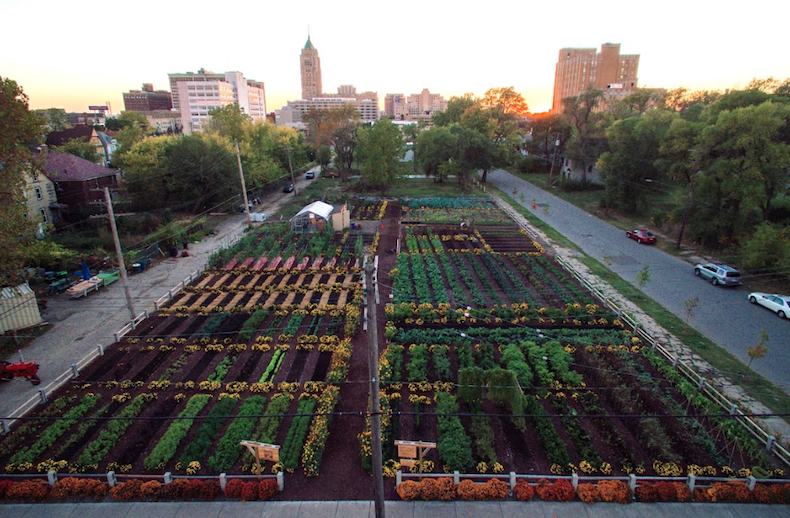 Photo: Michelle and Chris Gerard
Photo: Michelle and Chris Gerard
Related Stories
K-12 Schools | Aug 29, 2024
Designing for dyslexia: How architecture can address neurodiversity in K-12 schools
Architects play a critical role in designing school environments that support students with learning differences, particularly dyslexia, by enhancing social and emotional competence and physical comfort. Effective design principles not only benefit students with dyslexia but also improve the learning experience for all students and faculty. This article explores how key design strategies at the campus, classroom, and individual levels can foster confidence, comfort, and resilience, thereby optimizing educational outcomes for students with dyslexia and other learning differences.
Museums | Aug 29, 2024
Bjarke Ingels' Suzhou Museum of Contemporary Art conceived as village of 12 pavilions
The 60,000-sm Suzhou Museum of Contemporary Art in Suzhou, Jiangsu, China recently topped out. Designed by Bjarke Ingels Group (BIG), the museum is conceived as a village of 12 pavilions, offering a modern interpretation of the elements that have defined the city’s urbanism, architecture, and landscape for centuries.
Adaptive Reuse | Aug 28, 2024
Cities in Washington State will offer tax breaks for office-to-residential conversions
A law passed earlier this year by the Washington State Legislature allows developers to defer sales and use taxes if they convert existing structures, including office buildings, into affordable housing.
Industrial Facilities | Aug 28, 2024
UK-based tire company plans to build the first carbon-neutral tire factory in the U.S.
ENSO, a U.K.-based company that makes tires for electric vehicles, has announced plans to build the first carbon-neutral tire factory in the U.S. The $500 million ENSO technology campus will be powered entirely by renewable energy. The first-of-its-kind tire factory aims to be carbon neutral without purchased offsets, using carbon-neutral raw materials and building materials.
Architects | Aug 28, 2024
KTGY acquires residential high-rise specialist GDA Architects
KTGY, an award-winning design firm focused on architecture, interior design, branded environments and urban design, announced that it has acquired GDA Architects, a Dallas-based architectural firm specializing in high rise residential, hospitality and industrial design.
K-12 Schools | Aug 26, 2024
Windows in K-12 classrooms provide opportunities, not distractions
On a knee-jerk level, a window seems like a built-in distraction, guaranteed to promote wandering minds in any classroom or workspace. Yet, a steady stream of studies has found the opposite to be true.
Building Technology | Aug 23, 2024
Top-down construction: Streamlining the building process | BD+C
Learn why top-down construction is becoming popular again for urban projects and how it can benefit your construction process in this comprehensive blog.
Airports | Aug 22, 2024
Portland opens $2 billion mass timber expansion and renovation to its international airport
This month, the Portland International Airport (PDX) main terminal expansion opened to passengers. Designed by ZGF for the Port of Portland, the 1 million-sf project doubles the capacity of PDX and enables the airport to welcome 35 million passengers per year by 2045.
Adaptive Reuse | Aug 22, 2024
6 key fire and life safety considerations for office-to-residential conversions
Office-to-residential conversions may be fraught with fire and life safety challenges, from egress requirements to fire protection system gaps. Here are six important considerations to consider.
Resiliency | Aug 22, 2024
Austin area evacuation center will double as events venue
A new 45,000 sf FEMA-operated evacuation shelter in the Greater Austin metropolitan area will begin construction this fall. The center will be available to house people in the event of a disaster such as a major hurricane and double as an events venue when not needed for emergency shelter.


